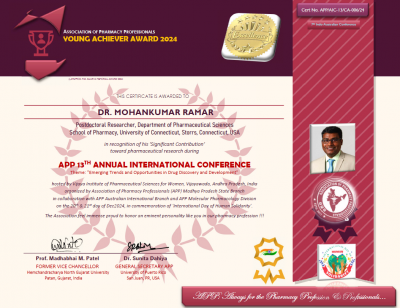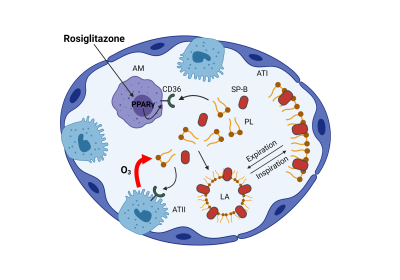Alok Singh, PhD joined the Smith Lab for Pulmonary Immunotoxicology as a Postdoctoral Researcher in February 2025. Dr. Singh has extensive experience with animal models of human disease, and he will apply this knowledge to ongoing studies in the lab focused on investigating mechanisms of pulmonary toxicity caused by exposure to chemicals and pollutants.
You can learn more about Dr. Alok at this link.
Welcome, Alok!


